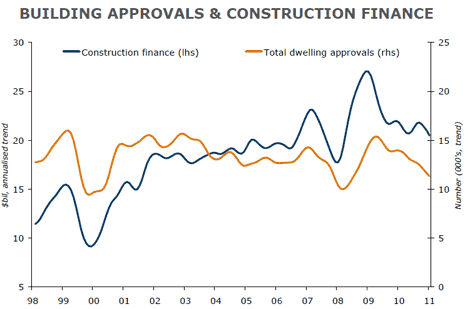Strong fundamentals mean there is no Australian housing price bubble: ANZ
There is no Australian housing price bubble, says ANZ in its latest assessment of the Australian property sector.
In its January assessment of the property market, the bank argues that gains in house prices over the past 25 years have been driven by increases in household income and lower interest rates.
The bank forecasts house prices will remain on hold or fall slightly in 2012, but will not crash.
“A combination of lower interest rates, falling house prices and rising household incomes has improved Australian house purchase affordability over the past 12 months,” say report authors David Cannington, senior economist at ANZ, and Paul Braddick, head of property research at ANZ.
“Despite the continued concerns about significant Australian house price overvaluation from some commentators, housing market fundamentals remain supportive,” they say.
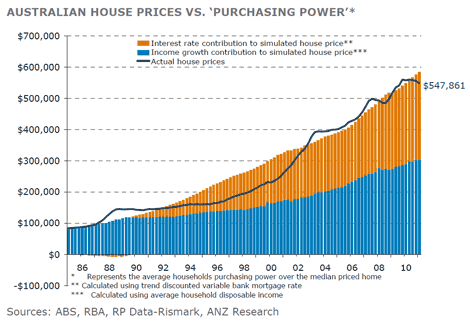
According to ANZ’s analysis, all the growth in Australian house prices since 1986 can be explained by gains in average household incomes and a structural decline in the cost of borrowing.
“Cross-country comparisons using partial valuation measures are commonly used to contend the case of overvaluation of Australian house prices. That is, suggesting actual house price growth in Australia has run significantly higher than justified by explained price growth,” says ANZ.
However, international house prices, rental yields and house price-to-income ratio comparisons compiled by ANZ suggest that Australian house prices have not deviated from international trends.
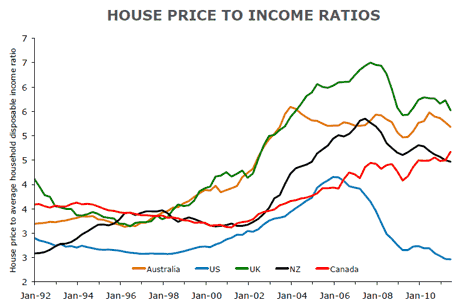
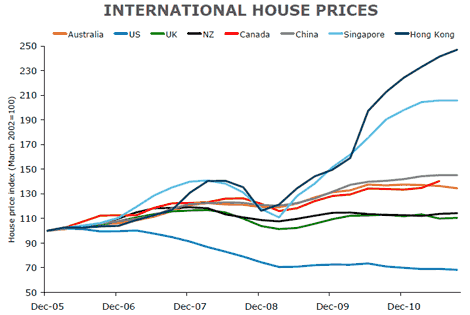
ANZ forecasts housing affordability to improve in 2012 following recent improvements due to softening house prices, rising household incomes and lower mortgage rates.
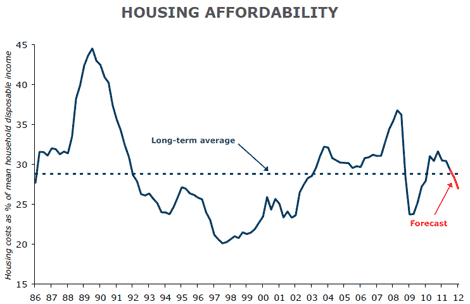
Among the factors ANZ says will continue to support the housing market is net migration, which is starting to rebound after the recent slowdown and combined with weak housing construction will add to the pressure building within the housing sector.
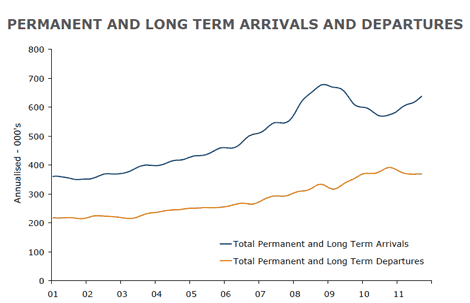
“While housing construction continues to weaken under the cloud of negative market sentiment and softening prices, forward indicators suggest the recent slowdown in net overseas migration will continue to reverse,” say Cannington and Braddick.
“This renewed housing market tightening will add further upward pressure on rents, household size and provide a fundamental support to flagging market activity, especially for the first-home buyer market.”
However, there will be no marked improvement in new home building in 2012, according to ANZ.
“Soft house prices, weak housing market sales activity and tight credit conditions have dampened residential developer sentiment. Despite the recent interest rate cuts, weak housing market sentiment will continue to weigh on residential development activity through 2012,” says Cannington and Braddick.
